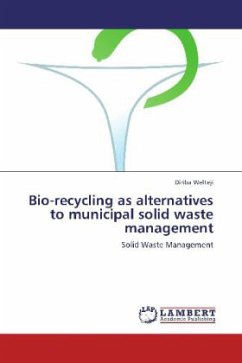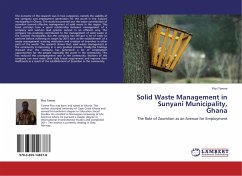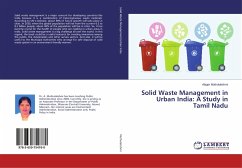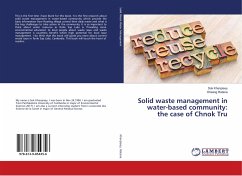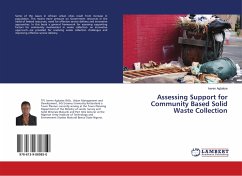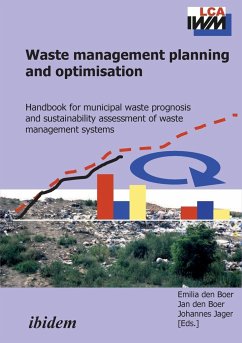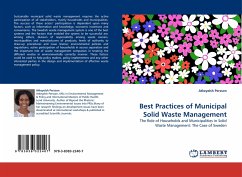
Best Practices of Municipal Solid Waste Management
The Role of Households and Municipalities in Solid Waste Management: The Case of Sweden
Versandkostenfrei!
Versandfertig in 6-10 Tagen
32,99 €
inkl. MwSt.

PAYBACK Punkte
16 °P sammeln!
Sustainable municipal solid waste management requires the active participation of all stakeholders, mainly households and municipalities. The success of these actors participation is dependent upon many factors, such as information and knowledge, economic incentives and convenience. The Swedish waste management system is one of the best systems and the factors that enabled the system to be successful are, among others, division of responsibility among waste owners, municipalities and manufacturers of products; levels of authority to draw-up procedures and issue license; environmental policies ...
Sustainable municipal solid waste management requires the active participation of all stakeholders, mainly households and municipalities. The success of these actors participation is dependent upon many factors, such as information and knowledge, economic incentives and convenience. The Swedish waste management system is one of the best systems and the factors that enabled the system to be successful are, among others, division of responsibility among waste owners, municipalities and manufacturers of products; levels of authority to draw-up procedures and issue license; environmental policies and regulations; active participation of households in source separation and the important role of waste management companies in treating the different wastes in environmentally correctly manner. These factors could be used to help policy makers, policy implementers and any other interested parties in the design and implementation of effective waste management policy.



